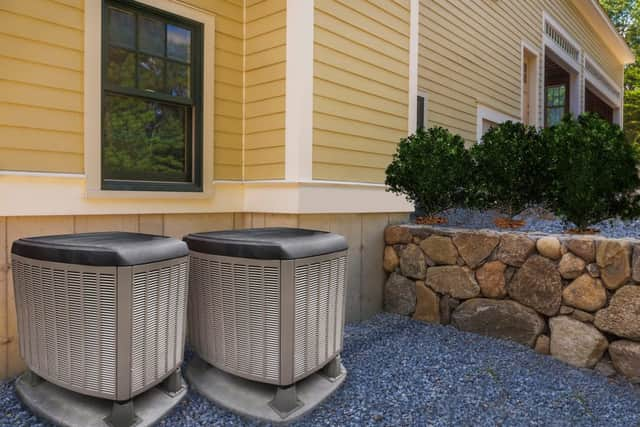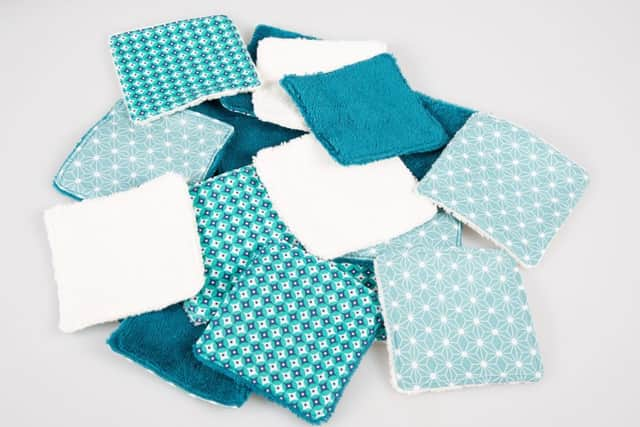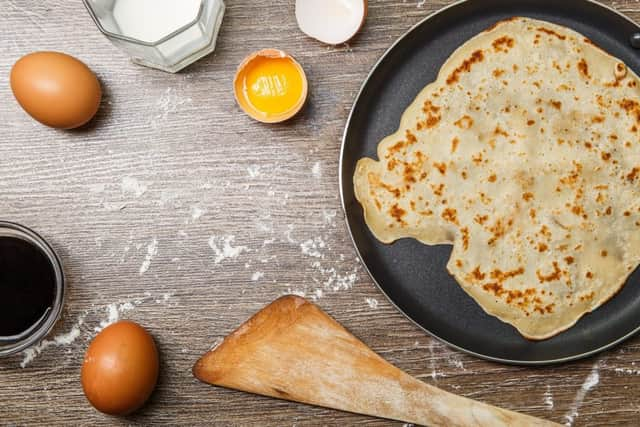Going Green: Government grants available for alternative heating but are heat pumps the answer?


Green Green campaigner and consumer expert, Angela Terry, separates climate change facts from fiction and explains how you can take simple, practical steps to help save the planet. Follow @ouronehome & visithttps://onehome.org.uk/ for more advice.
Q. Can I apply for the government’s heat pump grant and is it worth it?
A. The answer to the first part is yes.
That is if you're a homeowner in England and Wales and your home has a valid Energy Performance Certificate (EPC) that's been issued in the last ten years - and no outstanding recommendations for loft or wall insulation


Advertisement
Hide AdAdvertisement
Hide AdThen you can apply to receive a £5,000 grant towards the installation of an air source heat pump or £6,000 for a ground source heat pump (which costs more due to the necessary groundworks).
As to whether or not it’s worth it, here are things to consider:
Do they work?
Yes! Heat pumps are proven technology. Norway, where average temperatures are colder than ours, has the highest number of them per capital in Europe.
Like a fridge in reverse, they extract heat from the air or the ground – whichever is more efficient considering the kind of property and its location – and then compress the refrigerant to generate more heat. For one unit of electricity used they produce three units of heat, so they are good for the environment.
Is your home ready?
Advertisement
Hide AdAdvertisement
Hide AdHeat pumps don’t provide the same blasts of heat as boilers. When it’s cold you leave them on for longer.
They work slowly and consistently. This means your heating system needs to be set up a bit differently. You tend to need larger radiators or underfloor heating.
You also need to ensure you properly insulate your home. Heat escapes from walls, roofs and windows, which is why the grant is only for those who’ve sorted out the basics.
Global warming
Environmentally, heat pumps are a great idea. Unlike burning gas, they don’t produce carbon dioxide, the main pollutant responsible for global warming. They use electricity instead, which is increasingly generated from wind and solar power.
Advertisement
Hide AdAdvertisement
Hide AdAround a fifth of the UK’s carbon emissions comes from heating. The reality is that we won’t meet our climate targets unless we transition to clean energy, which is why new gas boilers will be banned from 2035.
How much will it cost?
The cost of a heat pump varies significantly, starting from £8,000. Each installation is unique. It depends on the type of pump, the size of the property and the heating system.
It’s best to get three quotes. In terms of running costs, your gas bill will go down – or will disappear altogether if your cooker and hob are electric – but your electricity costs will go up. Overall, you will pay less, so long as your home is well insulated.
If you decide it’s worth proceeding, your chosen heat pump installer will apply to Ofgem on your behalf. When installation is complete, installer will certify the system under the Microgeneration Certification Scheme (MCS). Ofgem will pay installer the grant. You’ll be billed for outstanding amount.
Celebrity spot
Australian actor Cate Blanchett


Advertisement
Hide AdAdvertisement
Hide Adis launching her own environmental podcast. Called Climate of Change, it launches on Audible in April, ahead of Earth Day, April 22.
Platform’s first major original climate change podcast series, it features Blanchett interviewing leading lights in environmental world.
The Oscar-winner is a known environmentalist, having starred in climate crisis satire Don’t Look Up and appearing in a TV commercial calling on Australians to back a carbon tax back in 2011.
Green swap
Swap disposable makeup remover wipes for reusable pads, used in conjunction with your favourite cleanser.


Advertisement
Hide AdAdvertisement
Hide AdYou can buy bamboo or cotton ones online. Some even come in a handy net bag so you don’t lose them in the washing machine.
How you can have an eco-friendly pancake day
On March 1 it’s Shrove Tuesday, although most of us know it as Pancake Day.


The original idea was to eat up everything left in your larder before fasting for Lent.
Pancakes use lots of store cupboard staples – like eggs and flour – and so became synonymous with the feast day.
Advertisement
Hide AdAdvertisement
Hide AdAs with every celebration, you can adapt it to reduce your impact on the planet – without losing any of the fun!
Here are some tips:
Green your batter
If possible, try to make your own pancakes.
The ready-made ones in the supermarkets come wrapped in plastic that goes straight into landfill.
It’s easier than you think and kids will love to help!
Next, consider making them plant-based.
A large percentage of the eggs you find in British supermarkets come from chickens fed on soy grown on deforested land in South America.
You can still have a delicious pancake without them.
Common swaps include chia seeds, flax seeds or bananas – even those brown ones you thought were beyond saving.
Advertisement
Hide AdAdvertisement
Hide AdYou can swap the milk and butter for plant-based alternatives too.
There are so many delicious recipes online, on sites like the BBC, Deliciously Ella or Norah Cooks.
Did you know you can even make pancakes from coffee grounds?
Once you’ve had your morning caffeine fix, you can turn them into a delicious breakfast.
Low waste chef Max La Manna has a simple recipe online.
Green frying pan
Advertisement
Hide AdAdvertisement
Hide AdAs with every purchasing decision, there are eco-options when it comes to frying pans.
Of course, if your current pan is in good condition, it’s not environmentally worthwhile to replace it.
But if you need a new one, it’s a good idea to consider your new one’s environmental impact.
Concerns have been expressed about traditional non-stick pans, as they can release toxic substances when overheated.
Advertisement
Hide AdAdvertisement
Hide AdTeflon coatings can break down and release invisible gases and particles that aren’t any good for you or the environment.
Look out for Belgian brand Green Pan or Prestige’s Eco range.
Eco toppings
Remember what pancake day’s all about and see what’s lurking at the back of your cupboard.
You could use up any scrapings of jam or marmalade – or melt any uneaten chocolate (if such a thing exists!).
Advertisement
Hide AdAdvertisement
Hide AdIf you’re opting for the traditional lemon and sugar, consider buying organic and Fairtrade, if you can.
Fact or fiction
Organic food – better for the environment?
Yes!
It’s grown without pesticides or chemical fertilisers harming soils and bees or polluting water.
A UN study showed a third of world’s soils acutely degraded. If possible consider buying organic food.